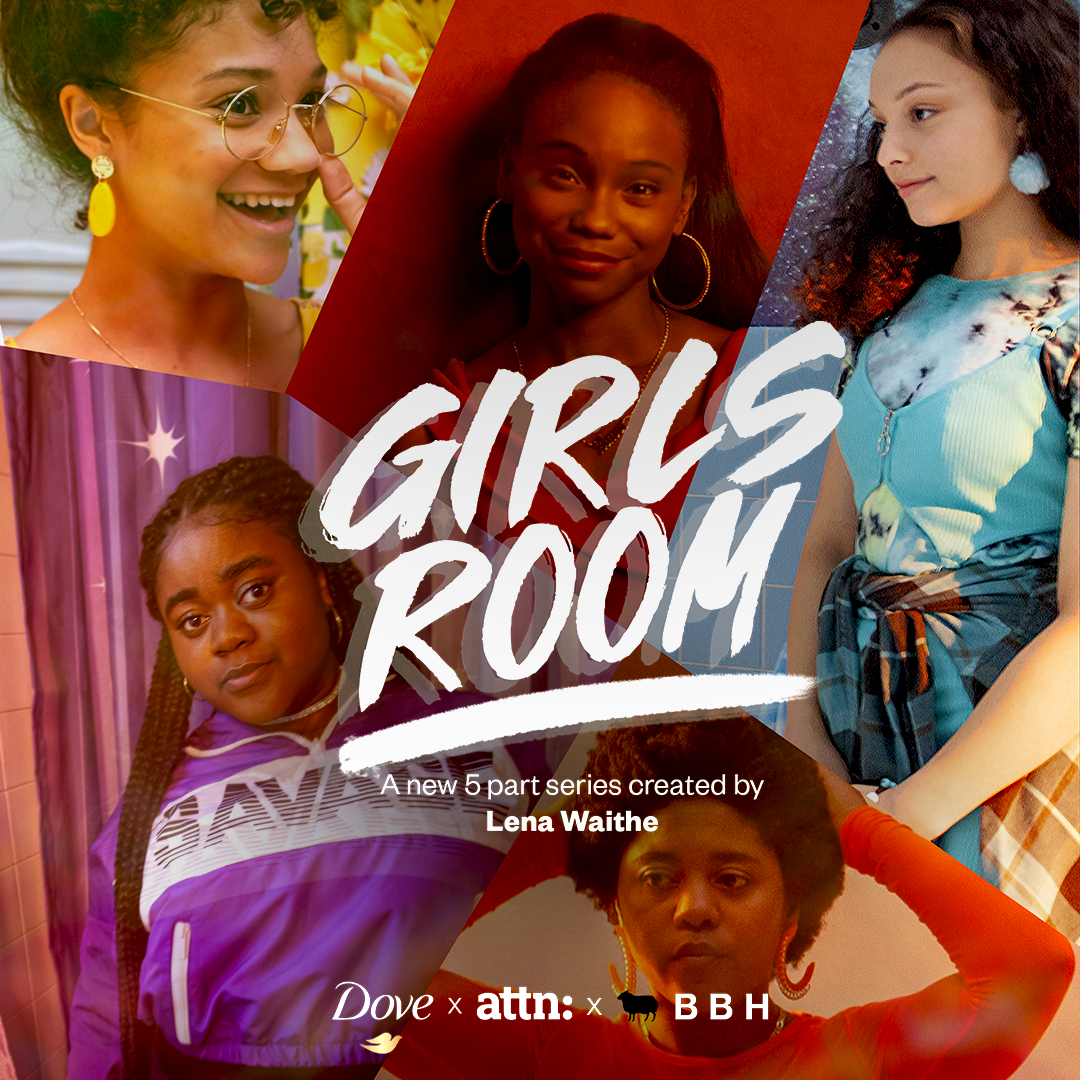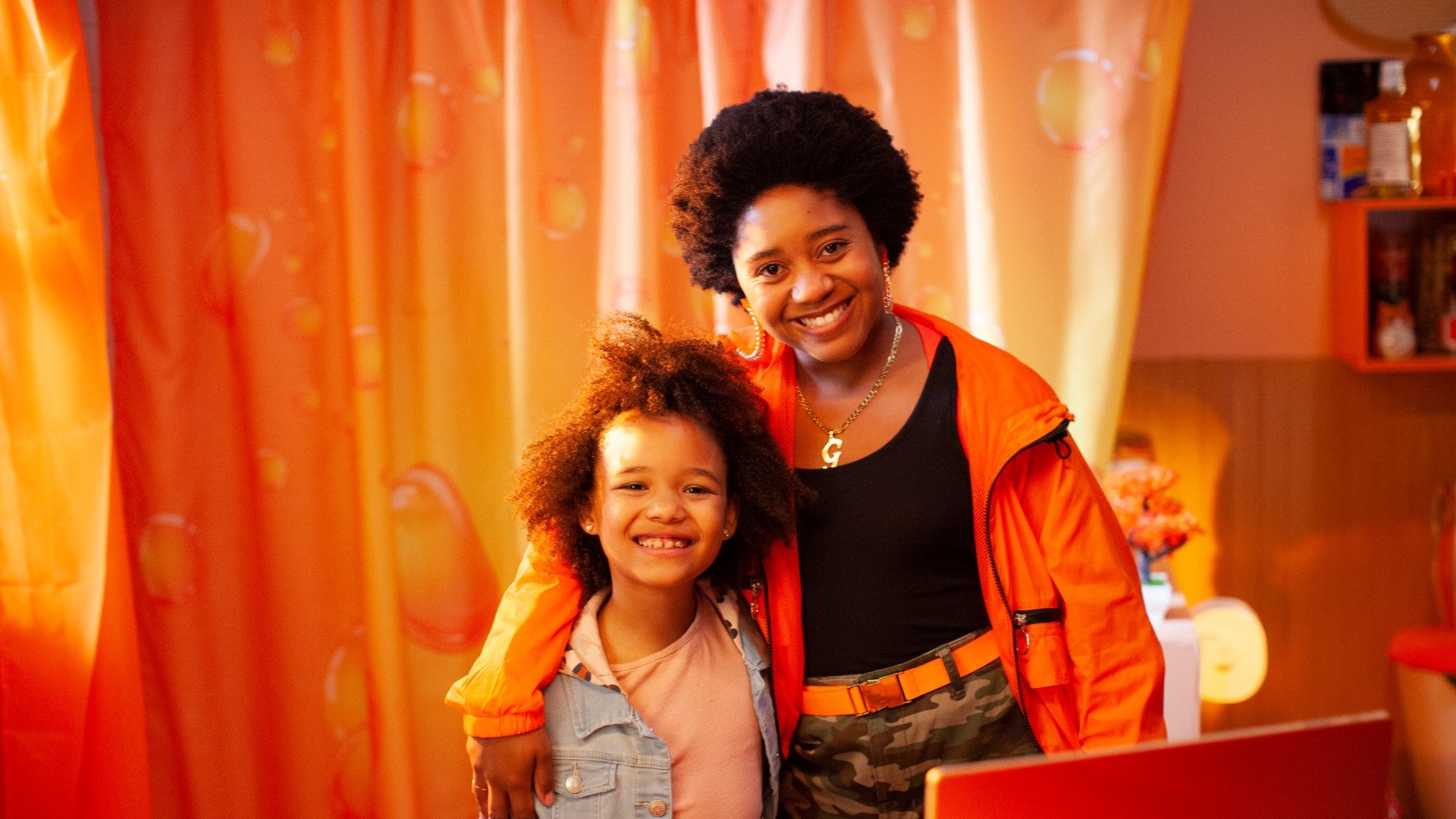
Imagine if those corny PSAs that played between your favorite shows as a kid were just as interesting and edgy as the programming you eagerly tuned into. Maybe many of us would have made better decisions. That’s a big maybe.
But Lena Waithe, Dove, director Tiffany Johnson, and ATTN: (that’s pronounced attention) are taking no chances on a maybe as it pertains to the self-esteem of our girls. Their new project Girls Room is like a PSA disguised as intriguing content that meets young girls where they are—on their phones.
Commissioned by the Dove Self Esteem Project, the scripted five-part series on ATTN:IGTV tackles the experiences of adolescent girls and how bullying, teasing, body image, social media, and other factors play a large role in the development of their self-esteem.
Waithe, who created the characters and their stories, is known for her ‘do you’ attitude. It’s no secret that she’s unafraid to hit a red carpet sans makeup, wear her hair long, short, or in a bright hue depending on how she’s feeling, and switch it up on us by throwing on a red lip if that’s where the mood takes her. For Dove, the Emmy Award-winning creator was the perfect person to represent a project about breaking beauty stereotypes.
“I want to just show up as myself. I cut my hair off. I dress how I dress, I talk how I talk, and I walk how I walk.,” Waithe told ESSENCE. “I think sometimes that does freak some people out. But for the most part people really seem to respond to it kindly and people, I think, are more inclined to live their authentic lives and be more of themselves. I hope I can inspire people to not try to live for anyone else or be a certain way to impress someone. The more you you can be, the farther you’ll go.”
On Tuesday night the Dove Self Esteem Project, along with Waithe and ATTN: held an event in New York to celebrate the premiere of the series. Less than 24-hours before the event, stories began to spread on social media questioning whether Waithe had taken the idea from a young Black writer in Atlanta named Nina Lee.
After the trailer debuted, Lee took to Twitter calling out the similarities in her project, similarly titled The Girls Room. In an interview with Okayplayer, she also admitted that there were some stark differences as well, sharing that her show was about the experiences of a group of twenty-somethings who meet at a bathroom while at the club. Waithe’s series focuses on young teens and reads more PG-13.

A Dove spokesperson said in a statement that “the similarity to any other creative projects is entirely unintentional,” and that they had been working on Girls Room since early 2017. And while Waithe’s Girls Room series is fun and interesting to watch, tackling the sophisticated issues that grown-ups oftentimes don’t realize plague teens, there’s an educational message in each episode.
Waithe briefly addressed the accusation on Twitter Wednesday morning, saying “I was brought on to write the scripts and produce the content. I have never seen Nina Lee’s work nor would I ever steal another artist’s work.”
Dove Self Esteem project was deliberate in wanting to touch on five key components of a study they’ve been conducting about self-esteem and self-image in girls: competing and comparing looks through social media, respecting and looking after yourself by listening to your body’s needs, teasing and bullying, talking about appearance and breaking beauty stereotypes in conversation, body functionality and embodiment and seeing the body as more than an object. The initiative’s goal is to use content to reach girls, and to help 250 million young people with self-esteem education by 2030. The less time girls spend worrying about the way they look, the more time they’ll have to realize their full potential overall.








“It’s a journey for all of us, but I really do hope that we can make some sort of impact with young women with this,” Waithe finished. “Growing up can be such a discordant experience—you can spend one moment feeling like you can conquer the world and the next full of self-doubt throughout this journey to define who you are every day. This [project] is like, ‘Nah, be yourself!’”







